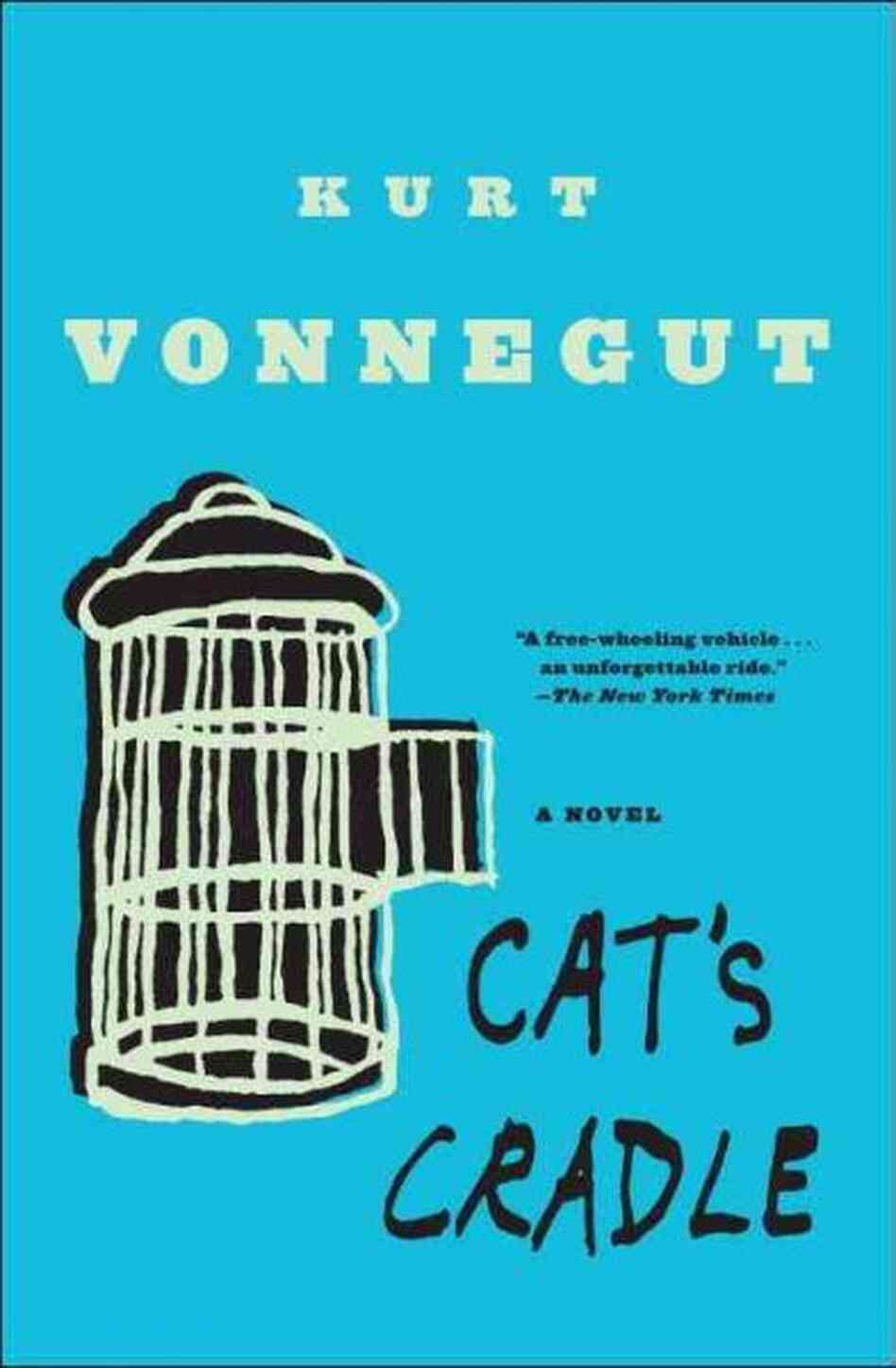The guest youth pastor holds up a banana. Its curve is perfectly “designed” for the human hand, he argues. He squints at our 13-year-old faces. What more proof of God do you need? The question hangs languid in the stale air of the church multi-purpose room.
I needed a bit more. But not because I wasn’t a believer – because I was.
Some of my peers were fine with the fact that they could feel the presence of God. Some were really into the Dead Sea Scrolls. Some believed in massive, shadowy conspiracies to hide the evidence of God – or massive, shadowy rationalizations for why the Bible doesn’t seem to match the fossil record. Some got really into Intelligent Design, or redefined the Big Bang. Some just didn’t really care.
I didn’t know then that it was personal – just that I had to know the truth.
The first sentence of “The Books of Bokonon” – the fictional foundational text of Bokononism, the religion Kurt Vonnegut invented for his 1963 novel Cat’s Cradle – reads as follows: “All of the true things I am about to tell you are shameless lies.”
The narrator of the novel later expands: “Anyone unable to understand how a useful religion can be founded on lies will not understand this book either.”
All of my struggle with Christianity was a struggle with truth. So many of its claims were demonstrably false, or unprovable – in my mind, that had to reflect negatively on the system as a whole. But what if truth wasn’t the point?
What if Jesus didn’t have to have existed for his teachings to be powerful? What if truth wasn’t the most important thing Christianity had to offer?
But then, I began to wonder some time after finishing Cat’s Cradle, what did it have to offer?
Soon after arriving at my Christian college, I joined up with a group of “red-letter” Christians. We read Shane Claiborne and Rob Bell. We believed environmentalism was stewardship for God’s creation, the death penalty was sinful, and the evidence for the mainstream understanding of Hell was incredibly sparse and largely incompatible with Jesus’ teachings. I went to church in a basement, pastored by a 30-year-old, with 20 or so other young liberals. This was the only way I could find to live the kind of life I wanted to live and make it compatible with Christianity.
But after reading Vonnegut’s book, I realized that I didn’t have to. In retrospect, it’s silly that it was only after reading an ironic screwball comedy about a fake religion was I able to accept this, but so it goes.
I truly believed – because it’s what I was explicitly taught – that it was impossible to be a good person without the guiding force of Christianity. That if I left the “narrow path” of salvation and wandered, I’d be imminently dragged into the Hell of hedonism, licentiousness, aimlessness, and spiritual poverty.
Once I was able to loosen, in my mind, religion’s grip on the truth, everything changed.
Looking back, the dire warnings weren’t far off. In the years following my escape from religion, I struggled – hard. I got addicted to alcohol. Had a handful of risky sexual encounters. I was and remain depressed. I nearly died. A few years later I was burned out, barely surviving… aimless.
But this was also the first time I let myself wonder, earnestly, whether I might be gay, queer, non-binary, trans. I went to a packed gay nightclub and experienced boundlessness. I got facial piercings, had one-night stands, met beautiful and terrible people I never would have otherwise, learned more about myself than I’d known was possible.
I loved harder and realer and worse and better than I’d ever imagined. I made mistakes – but they were mistakes because, for example, I’d found myself across town in a stranger’s bedroom and didn’t know how I was going to get home the next morning, not because what we did together was a sin.
The core idea I’d been taught in Christianity was that of “original sin:” Adam and Eve had fucked it all up for the rest of us. All human beings have “fallen short of the glory of God,” says the book of John, and as such we’re all in need of salvation through the sacrifice of Jesus. But what if that wasn’t true either?
It turns out, I didn’t need salvation. It wasn’t just that parts of Christianity were untrue – they were unnecessary.
Wouldn’t any God worth submitting to judge me based on how much I loved and cared for humanity and the Earth given my circumstances, not whether I subscribed to a particular religion?
Cat’s Cradle helped me realize that the best part of Christianity – Jesus’ radical social justice teachings – were useful whether they were tied to religion or not. I didn’t need religion to be good, and didn’t need it to be saved. I could explore, and eventually be, without fear. I was free.




Time for me to read Cat’s Cradle again! Thank you so much for sharing this. The first time I read this book I was in a similar place, so this is bringing back a lot of memories <3
I am loving this series! It’s great to be reminded of all the ways stories matter.
Another amazing blog from ABENI JONES. All you have shared in this article are useful that I can’t wait to apply these in real life.